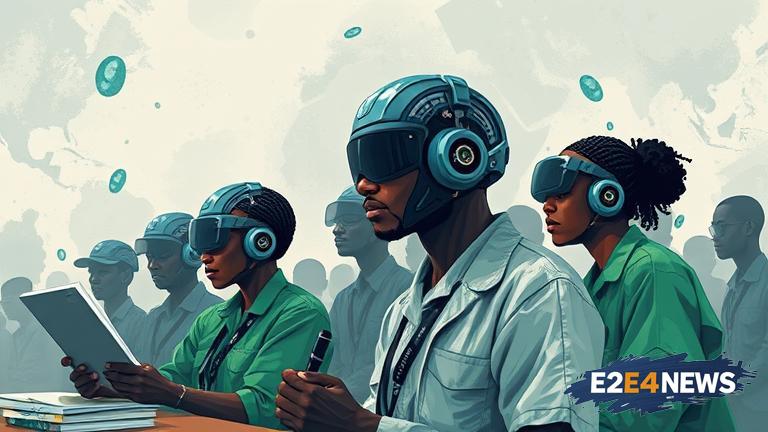As Nigeria gears up for the 2027 elections, journalists have been urged to take a proactive stance against the spread of misinformation, particularly that driven by artificial intelligence. The call to action comes amidst growing concerns over the potential impact of AI-generated content on the electoral process. With the rise of deepfakes, fake news, and other forms of AI-driven misinformation, the role of journalists in verifying and fact-checking information has become more crucial than ever. Journalists have been tasked with developing the necessary skills to identify and debunk AI-generated content, which can be incredibly convincing and difficult to distinguish from genuine information. The use of AI-driven misinformation has been on the rise globally, and Nigeria is no exception. The country’s electoral process has been marred by instances of misinformation and disinformation in the past, and the 2027 elections are expected to be no different. However, with the advent of AI-driven misinformation, the stakes are higher than ever. Journalists have been warned that the spread of misinformation can have serious consequences, including undermining the integrity of the electoral process and fueling social unrest. To combat this, journalists will need to be equipped with the latest tools and techniques for detecting and debunking AI-generated content. This includes using fact-checking software, verifying sources, and being cautious of information that seems too good (or bad) to be true. Additionally, journalists will need to be aware of the potential biases and limitations of AI algorithms, which can perpetuate existing social and cultural biases. The Nigerian government has also been urged to take steps to regulate the use of AI-driven misinformation, including implementing laws and regulations to prevent the spread of fake news and disinformation. Furthermore, social media platforms have been called upon to take responsibility for the content shared on their platforms, and to implement measures to prevent the spread of AI-driven misinformation. The fight against AI-driven misinformation will require a collaborative effort from journalists, policymakers, and technology companies. Journalists will need to work together to share best practices and develop new strategies for combating misinformation. Policymakers will need to create an environment that supports fact-based reporting and penalizes the spread of misinformation. Technology companies will need to invest in developing tools and technologies that can help to detect and prevent the spread of AI-driven misinformation. Ultimately, the success of the 2027 elections will depend on the ability of journalists, policymakers, and technology companies to work together to prevent the spread of AI-driven misinformation. The use of AI-driven misinformation is a global problem that requires a global solution. Nigeria is not alone in this fight, and the country can learn from the experiences of other countries that have faced similar challenges. By working together and sharing best practices, Nigeria can develop a robust and effective strategy for combating AI-driven misinformation and ensuring the integrity of the 2027 elections. The role of journalists in this effort cannot be overstated. Journalists are the gatekeepers of information, and they have a critical role to play in verifying and fact-checking information. By taking a proactive stance against AI-driven misinformation, journalists can help to prevent the spread of fake news and disinformation, and ensure that the public has access to accurate and reliable information. The fight against AI-driven misinformation is a long-term effort that will require sustained commitment and investment. However, with the right strategies and tools in place, Nigeria can overcome this challenge and ensure the integrity of the 2027 elections.
